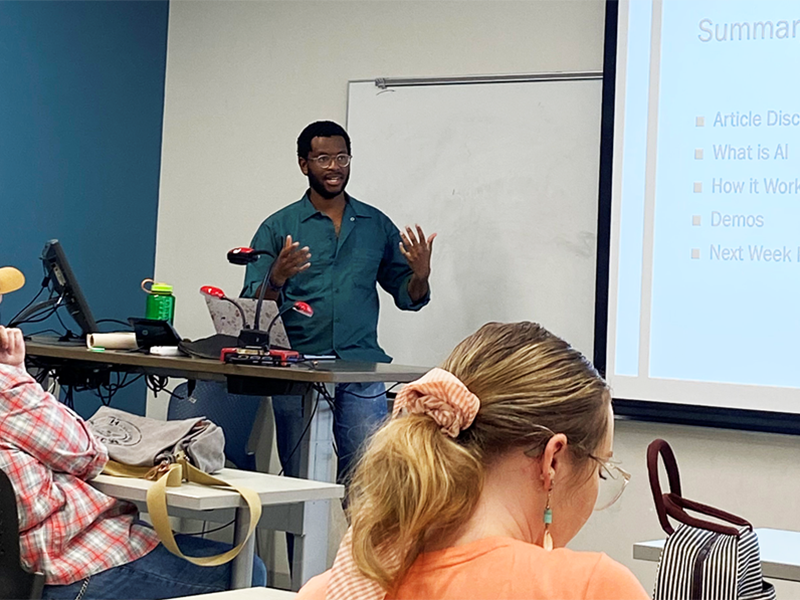Last week in the Introduction to Digital Humanities course, the class was joined by Carter Buckner, a Ph.D. student in computer science, as a guest lecturer. During the class meetings on Tuesday and Thursday, Buckner spoke to the class about artificial intelligence and taught the class how "large language models," or LLMs, learn data and provide outputs based on hidden layers of vectors.
Drawing from recent texts from both sides of the discussion, Buckner also spoke about error, bias and undefined behaviors in artificial intelligence. The class discussed artificial intelligence vs. human intelligence, and if producing information based on big data (AI) is the same thing as being human.
Introduction to Digital Humanities WLLC 398V/575-V is taught by Curtis Maughan, a teaching assistant professor in the Department of World Languages, Literatures and Cultures and director of the WLDH Studio. The class meets on Tuesdays and Thursdays, 2-3:15 p.m.
"I'm thrilled to have Comp Sci Ph.D. candidate Carter Buckner join a course being offered by the World Languages, Literatures & Cultures Department to lead a truly interdisciplinary discussion about AI and its myriad impacts," Maughan said. "This sort of interdisciplinary engagement is essential to 'Intro to DH,' which aims to explore technological developments through a global, mutiperspectival lens."
Buckner's research interests involve privacy studies and AI, and how different stakeholders are affected by the rise of artificial intelligence.
"I was very excited to see where on the spectrum people in class were on AI and its adoption," Buckner said. "We used technical information on how AI works to better understand how different groups could be impacted. AI is ubiquitous and affects us all in very different ways — for better or worse."
Topics
Contacts
Cheyenne Roy, assistant director
World Languages and Digital Humanities Studio
479-575-4159,
